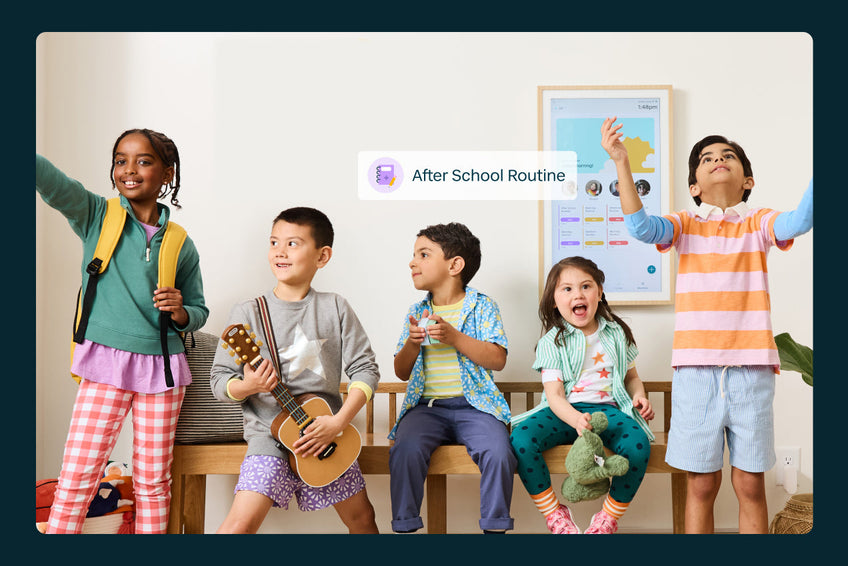As parents, the journey of understanding and supporting your child’s unique needs is a lifelong learning experience. And, for those whose children may need extra support—whether because of ADHD or other challenges—finding the right strategies becomes even more important. Building a strong structure and nurturing an environment where your child can thrive takes thoughtfulness and care.
We sat down with Samantha Levy, a seasoned second and third-grade teacher who has extensive experience working with children with ADHD. She offers valuable insights into how we can truly show up for our kids and provide the support they need.
It’s all about striking the right balance—creating a sense of framework that allows for flexibility, so you can be that dependable, grounded presence in their lives. By being patient, compassionate, and adaptable, you not only help your child navigate their world with confidence but also give yourself the strength to handle the ups and downs with grace and resilience.
Make Structure A Priority
“While structure and predictability are helpful for all kids, students with ADHD thrive on the structure and knowing what their day entails,” Levy shares. “It brings a level of ease and confidence as they know what to expect at any moment throughout the day. Oftentimes, any changes or surprises in the day can cause uncertainties and confusion for children with ADHD, leaving them unable to fully focus or transition between activities.”
Plan Ahead, Plan Together
“If possible, talk about the upcoming week with your student during the weekend. This gives the child plenty of time to sit with the plan, ask questions, and continue to go over the schedule if needed,” she shares.
“If your child is younger, make a visual calendar or daily schedule with images to help them with reminders as well! If your student is of school age, ask their school or teacher for the weekly schedule, it might be helpful to ease questions about the school day, reviewing what subjects or activities that child will be participating in each day while at home.”
Validate Your Child’s Feelings, But Hold The Boundary
“I think this comes down to clear and open communication with your child. Validate their feelings if they’re upset but hold the line with your boundary,” she shares.
“For example, if your child is set on playing Minecraft after school but you don’t allow screen time on school nights, you can reply something like, ‘I understand you’re upset and want to play your game. It’s a school night so how about instead we draw a picture of your favorite scene in Minecraft?’ Or, ‘Why don’t we read the new book we just checked out at the library together instead?’ I know a lot of time these things are easier said than done and it’s hard in the moment but establishing the boundaries important to you and keeping them, will allow things to be fair and structured in the long run.”
“Discussing and making sure your child knows the expectations and boundaries beforehand can also help make sure there are no surprises. If getting your child to brush their teeth every morning is a struggle, but eventually they do it, celebrate and praise them! Positive praise and celebrations go a long way!”
Be Gentle On Yourself
“Supporting your child with ADHD is hard work and can be very challenging to stay patient, especially when working to find strategies and tools that work for your specific child! Reach out to others and know, you are not alone. Check-in with your child’s school for support resources centered around ADHD.”
“Oftentimes, schools have reading materials or can offer support. Check-in with your student's teacher and make a plan. Your teacher is more than likely open to hearing more of the things you already have in place. There are various support groups for parents of kids with ADHD, virtual or in person.”
Use Thoughtful Incentives
“Incentives can be tricky. For the long run, buying your child ‘things’ for doing something positive is going to become a big stressor and most likely, impossible to keep up with as your child grows older.”
“I like to think about experiences or celebrations instead—like picking their favorite meal that day or going to the park. Incentives and celebrations don't need to be a big thing, what matters is the time spent together with you.”
Make Habits Special & Fun
“When trying to incorporate healthy habits, try making it special and fun. Put your phone away and fully engage and connect with your child. Give your child your uninterrupted time during story time before bed for example, even if it gets a little silly, just be with your child and see them in that moment.”
Explore Hearth Display’s features and discover how its structure can simplify life for you and your family here.




